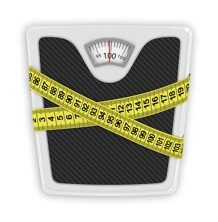
Question
It seems all my attempts to lose weight and get rid of my belly fat fail. Is there hope for me?
Answer
Absolutely. Normal attempts at weight loss can fail if you’re battling any metabolic disorders.
When you are doing all the right things but still not losing weight you may have some health issues sabotaging your efforts.
Issues that can hinder weight loss:
- Hypothyroidism
- Chronic inflammation
- Food intolerances
- High cortisol
- Insulin resistance
- Leptin resistance
- Hormonal imbalance
- Brain chemistry imbalances
- Certain medications
Hypothyroidism
Hypothyroidism affects millions of Americans yet its root cause rarely goes addressed, which can make it impossible to lose weight. Although thyroid hormone medication may be necessary, an autoimmune disease is behind most cases of hypothyroidism and needs to be addressed for success.
Chronic inflammation
Chronic inflammation is a common reason many people can’t lose excess belly fat. Food intolerances (gluten in particular), autoimmune disease, poor diet, or a blood sugar imbalance are things that can cause chronic inflammation. Chronic inflammation raises the adrenal hormone cortisol, which causes belly fat to accumulate and makes weight loss difficult.
Blood sugar imbalances
Blood sugar imbalances trigger leptin resistance. Leptin is a hormone that controls appetite, satiety, and whether you burn or store fat. Constant insulin surges from starchy, sugary diets cause cells in the body to become resistant to leptin, which in turn causes constant hunger while hindering fat burning.
Hormonal imbalances
Hormonal imbalances sabotage weight loss. In many women this translates to high cortisol, high testosterone, and insulin resistance (a precursor to diabetes.) These women battle not only weight gain, but also excess belly fat, facial hair growth, hair loss, and problems with menstruation or menopause.
Men are subject to low testosterone and high estrogen, which promotes not only belly fat, but also “breasts” and “hips.”
Brain health
Hypothyroidism, inflammation, blood sugar issues, or hormonal imbalances may also impact brain health, which is very sensitive to deviations in metabolic health. Imbalances in the brain’s neurotransmitters, or relay chemicals, can lead to cravings and addictive behavior, such as overeating.
Certain medications can also cause weight gain, inflammation, or bloating.
Address the underlying cause for weight loss
Weight loss is so much more than counting calories or grams of fat or carbs. It’s also important to address the underlying issues that cause weight gain or prevent weight loss.
Ask my office for more advice on underlying factors that prevent weight loss. I spend a fair amount of my clinic time helping patients with weight loss. We can work together to find the best and healthiest diet out there, for you!

 RSS Feed
RSS Feed